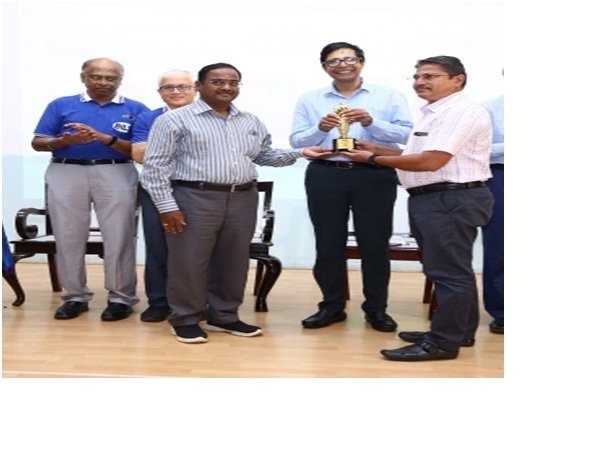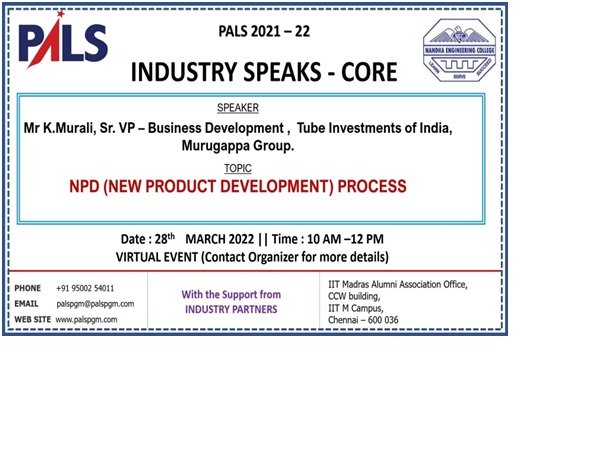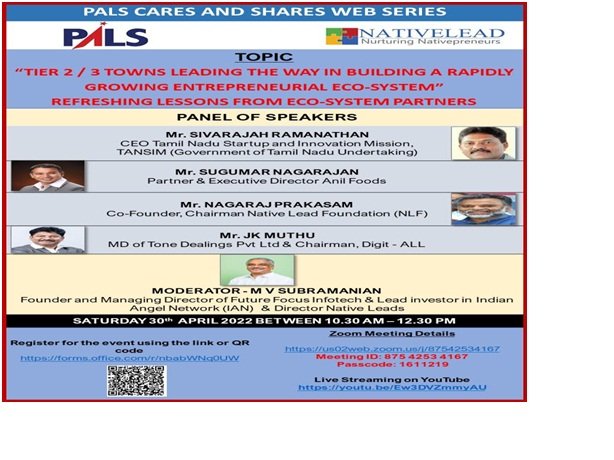7.2.1 Best practices successfully implemented by the Institution
Best Practices - I
Title of the Practice : Go Green Environment Practice
Objectives of the Practice
The institution binds to focus on clean and Green Environmental practices that aims at achieving eco-friendly atmosphere in the campus.
The main objectives are listed below:
Expanding the greenery in the campus.
Initiating activities to protect the environment and to reduce carbon emission by using energy resources.
Effectively maintaining the solid waste and e-waste.
Minimization of waste generation and safe disposal of the wastes in campus.
Conserving recycled water in flushing and gardening system.
Conservation of electrical energy by implementing energy efficient system and solar panels.
The Context
A clean and healthy environment aids effective learning and provides a friendly environment.
Optimum use of natural resources and keeping our environment clean and green are necessary for healthy living and sustainable future.
The stakeholder works to develop the campus by the concept of eco-friendly culture.
Awareness to leverage the latest technology in energy conservation and usage of best practice.
Effective use of recycled waste water in flushing system and irrigation.
Go Green (Swatch Bharat) Mission are the concepts evolved after realizing the harmfulness of pollution which affects not only human health and also the ecological balance.
The Practice
Policies related to green initiatives and waste management are established and implemented.
Use of paper cups and plates is encouraged and the use of plastic bags and plastic tea cups is banned. Plastic free culture is imbibed.
E-waste is maintained for safe disposal.
Waste water treatment plant is built to meet the water quality requirements.
Recycling of waste water and using it for gardening helps to reduce consumption of water.
Rain water harvesting facilities are made across the campus to harvest rain water and stored in bunds for ground water recharge. Monitoring of water levels in tanks and bunds are in practice.
Quality drinking water dispensing system with well-maintained RO Plant and filtering station.
The treated water is being stored in nearby water pond to increase the water table of local area.
Instead of using packed water in plastic containers, students are encouraged to use refillables like stainless steel bottles or glasses.
Steps are taken to reduce plastic pollution in the college campus with special focus on the reduction and elimination of plastic bottles, plastic straws, utensils and plastic food packaging.
Separate dust bins are provided to collect degradable and non-degradable wastes in solid, liquid and e-waste forms.
The concept of green campus campaign and environmental friendly practices in the campus resulted in maintaining a clean and green campus.
Workshops and seminars on environmental issues to create awareness among the students.
Eco-Club and Energy Conservation Club have succeeded in fostering an energy conservation culture and attitude among students, staff and masses in nearby areas.
Cleanliness programs conducted by NSS and NCC time to time.
Maintenance of garden and various play grounds by NSS and sports committee
Encouraging the students and faculty to save electricity, papers, water and use of dust bins etc.
Environmental awareness program (single use of plastics awareness) conducted by NSS unit of the college.
“Vermi Composts” are being prepared in the college campus and are used as organic fertilizers.
E-waste, like electronic gadgets, mother board etc., are partially reused by the students to retrieve important electronic components for project works.
Availability of different sports facilities in the campus like cricket ground, football ground, basketball ground etc., encourages local people to make use of the available facility.
Fire safety pumps installed with integrated fire alarm in academic buildings.
Evidence of Success
The campus has a green cover of about 60% and is a sanctuary to a variety of insects and birds.
The green campus developed by college helps not only to save the environment, but also adds to the beauty of the campus and create awareness among the students.
Besides harboring the people, plants are used for scientific studies.
Ban on plastic items, vermi-culture and vermi-compost has made college campus clean.
Eco-campus strategies employed resulted in beautiful and clean college in the vicinity. It has resulted in attracting more students.
The college generally does not generate any hazardous waste in any manner. However, the college strives to generate minimal waste and tries to reduce the use of plastics where ever possible.
Paper waste is sold off to vendors who send it for recycling.
Printer Cartridges are generally refilled and not disposed. Whenever refilling is not possible, the cartridges are returned to the manufacturer.
The college organizes periodical NSS camps to inculcate the values of plantation among the students and the faculty members.
Seminars and class room teachings are practiced to create awareness among stake holders for proper waste disposal.
Uses of plastic bags are discouraged in the campus.
The entire building of the institution is designed by the architect in considering the maximum utilization of the natural resources.
All the class rooms are well lit with natural light and well ventilated.
Problems Encountered and Resources Required
Financial resources are always needed to secure success in organizing these programs.
Coordination from external agencies is required to put the theory in practice.
Programmes with external agencies should be organized to let people of the area understand the importance of environment cleanliness and up gradation.
Upholding the motivation level in voluntary work and ensuring the wholehearted involvement of volunteers in all the activities is also a problem which requires careful teacher supervision.
Awareness programmes and carrying out door- to- door campaigns will also help to overcome the obstacles.
Continuous efforts are required to create awareness and to sustain the GO GREEN policy. Organizing programmes related to this theme of practice amidst heavy academic schedule is necessary.
More number of labours / workers are required for the establishment. Maintenance and retaining labours / workers of this category is challenging.
 |
 |
 |
 |
 |
 |
Best Practice - II
Title of the Practice: Skill Development Practices Through PAN India IIT Alumini Lecture Series (PALS) - IITM
Objectives of the Practice
The institutionenables the students to be “Industry Ready” and meet the expectations of the Market, when they begin their career.
Various offerings from PAN INDIA IIT ALUMINI LECTURE SERIES (PALS) are delivered by and with active collaboration from Faculty, Management and Alumni of various IITs, apart from domain experts from across the globe.
To collaborate actively with IIT Madras Research Park / Start up incubation cells, TLC (Teaching Learning Center) RuTAG (Rural Technology Action Group), E-Cell etc of IIT Madras.
To complete 360-degree intervention that PALS provide students with an exposure to the industry so that they are more confident in their engineering career.
The Context
Skill is a kind of knowledge that requires ability, critical knowledge, creativity, practice and experience to perform a job successfully.
The graduates find it difficult to be placed in companies since they lack in practical skills. The industry requires practical skills with supporting theoretical knowledge in their concern field.
Understanding the need of the hour and to prepare ready-for-industry graduates, Skill Development Program was initiated at KSR COLLEGE OF ENGINEERING from 2016 batch.
In the prevailing scenario of the demands of companies on new and emerging coding skills at a fast pace, it is imperative to consistently inculcate the students particularly aspiring for product and service based companies.
With a view to equip and enrich the students to acquire the professional competency, PALS facilitates the students to develop their skill set.
The Practice
PALS offers a regular engagement with the students and faculty through a series of events conducted throughout the year with various activities. It features various events such as insightful general and technical lectures, Industry visits, Innovation Challenge Competition and various Workshops and Seminars for students as well as for faculty.
Technology experts and eminent alumni are called upon to speak on technical topics of interest related to conventional engineering subjects like Mechanical / Civil / Chemical / Metallurgy / Electrical etc.
Lecture sessions are followed by a highly interactive session with each college in the respective zone nominating a team of students who would research the topic
Participate in a Q&A session with the speaker and also make a presentation on their understanding of the topic.
Target audience will be engineering students from first year to third year. The sessions are conducted in virtual mode for half a day.
Technology experts and eminent alumni will be called upon to speak on technical topics of interest related to cutting edge and breakthrough technology subjects like Artificial Intelligence, Robotics, Data Science, Block Chain, IOT, VR & AR, Cloud Computing, 3D Printing, Nano Technology etc.
The lecture sessions are followed by a highly interactive session with each college in the respective zone nominating a team of students who would research the topic, participate in a Q&A session with the speaker and also make a presentation on their understanding of the topic.
These are case study analysis sessions for student teams from each college in a zone enabling them to focus on real life problem situations in industry. They discuss to analyze the case, define the problem and search for solutions which will hone both their quantitative and qualitative skills.
PALS analyze gives an opportunity for a select group of students to think on their feet in a high pressure situation and make a presentation to a big audience.
Theory to Practical (T2P) lectures creates an awareness among the students to understand the theoretical concept with practical application in industry. This has been a huge and popular event for students and faculty alike.
The lectures are usually conducted at IIT Madras by professors who treat an engineering problem as a case study and explain both the theoretical aspects as well as the practical application of the concepts. They are sometimes assisted by the presence of experts from industry who have used the application.
Evidence of Sucess
KSRCE is awarded by PALS for the most number of student’s participation in skill development program.
There is a steady increase in the number of participants in PALS, both students and members of faculty, year by year.
An average of over 30 events is conducted every year by PALS.
Students and faculty’ actively participate in all the programs conducted by PALS and are much inclined to learn through various practical activities.
Year wise No of Enrolled Students Registeded in PALS
S.No |
Academic Year |
No of Students Registered |
1. |
2022 - 23 |
310 |
2. |
2021 - 22 |
280 |
3. |
2020 - 21 |
221 |
4. |
2019 - 20 |
384 |
5. |
2018 - 19 |
280 |
6. |
2017 - 18 |
120 |
Problems Encountered and Resources Required
Problems Encountered
The difficulty to meet the exact requirement that industry needs from graduates, to create infrastructure for practicing the skill training sessions for all the students and resource persons are employed from all domain areas to train the students.
Establishing relationship and entering into MoU with reputed industries takes at least a year. Follow up activities to retain the partnership becomes a challenging one.
Finding slots with industries for student /faculty training during summer and winter vacations and for field visits are becoming difficult.
Resources required
Industrial relations are required in each department in addition to central IIPC team.
Students’ pursuing their education aspire to get placed in their respective core companies. However, as per the current trend, the number of core companies come for recruitment is less when compared to software companies.
The students of a few branches like ECE, EEE and Mechanical Engineering do not have computer papers in their third year. It becomes difficult for them to get placed in software companies. As our institute has industry certified faculty members in the departments of CSE and IT, they are utilized for giving special training to the students in the required areas.
 |
 |
 |
 |
Other Practices
1. National Service Scheme (NSS)
The National Service Scheme (NSS) is a Central Sector Scheme of Government of India, Ministry of Youth Affairs & Sports. It provides opportunity to the students to take part in various service activities & programmes. The sole aim of the NSS is to provide hands on experience to young students in delivering community services. It makes the students be confident, develop leadership skills, and understand problems of mankind.
Every year, tree plantation program is organized to establish Eco Environment in K.S.R College of Engineering. Trees give us oxygen, shade, medicine, food, fruits, furniture, fuel etc. Trees also keep the weather cool and helps in rainfall. Trees are part and parcel of our life. So, it is our duty to plant more trees and take care of them in order to maintain balance between man and nature. To make the country economically developed and to save the globe from greenhouse effect, we should plant trees on a large scale.NSS unit is functioning with 100 student volunteers.This unit is conducting various social related activities in and out the campus. ‘Tree Plantation’ camp is executed by NSS student volunteers with the guidance of NSS co-ordinators and the Principal. This program is carried out in K.S.R. College of Engineering campus. Yearly, 40 saplings are planted at an interval of 3 meters which were planted around 28 acres in and around the buildings and at vacant places regularly. Tree saplings are being collected from our KSR management’s own nursery. Tree saplings like paradise, neem, bakula, champaka flower, portia and beech are selected and planting is carried out in the campus with proper water management system.
Tree plantation was carried out around the Library block on 30.07. 2018 and around KSRCE Boys hostel on 01.08.2018. The same was done around Computer Science and Engineering Department block. College has its own waste water treatment plant and this treated water is reused for maintaining the plants. Even during covid pandemic period, KSRCE NSS unit encouraged the students to carry out tree plantation in their respective locations. About 50 students, public and police personnel were involved in this activity. During this period, tree Plantation Program was conducted at different places like Dharmapuri, Krishnagiri, and Tiruchengode of Tamilnadu state. Saplings like coconut and banana plants were arranged by our student volunteers and plantations were made in these locations. Also, lawn and gardening work was done in Krishnagiri four roads police station. These volunteering works was appreciated by the public and Police department.
The main objectives of NSS are
Methods & Techniques of working with people.
Self-Development and a sense of social and civic responsibility
Utilize the gained knowledge in finding practical solutions to individual and community problems.
Rural work under NSS.
Urban work under NSS
Afforestation & Tree Plantation.
Non-formal education for rural youth.
Swacch Bharat Mission.
Acquire leadership qualities and democratic attitudes.
Develop capacity to meet emergencies and natural disasters Practice national integration and social harmony
Stage shows or a procession creating awareness of such issues as social problems, education and cleanliness
Awareness Rallies
Inviting doctors for health camps
There are no pre-defined or pre-assigned tasks, it is left up to the volunteers to provide service in any way that is feasible. Camps typically last between a week and 10 days, although camps for shorter periods are also conducted by NSS.
 |
 |
 |
 |
 |
 |
 |
 |
 |

